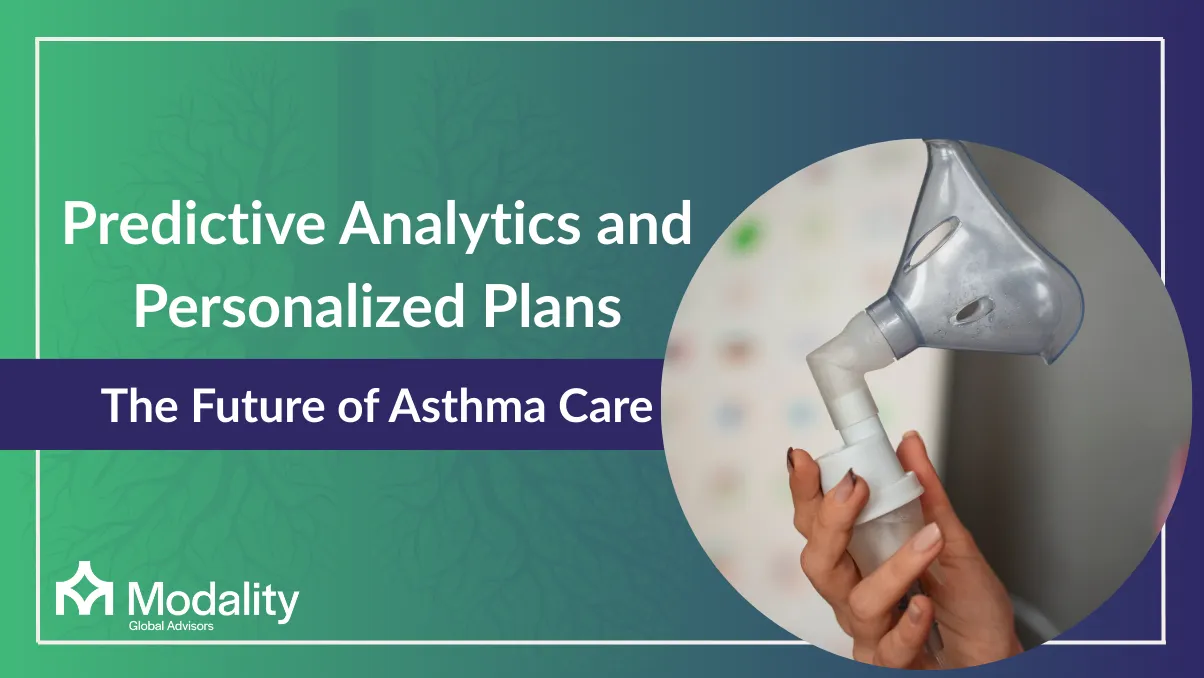Asthma, a chronic condition affecting over 262 million people globally and causing more than 455,000 deaths annually (WHO, 2023), remains a significant health burden despite being manageable. Historically treated reactively, asthma care is now evolving through the power of predictive analytics and personalized care plans. These data-driven strategies enable early intervention, reduce hospitalizations, and mark a shift toward proactive, precision medicine tailored to individual patient needs.
Transitioning from Crisis Management to Crisis Prevention
Patients with asthma were traditionally only treated when their symptoms worsened. The foundation of care consisted of inhalers, steroids, and emergency procedures. But today, predictive analytics is upending that paradigm, moving the emphasis from treating symptoms to foreseeing and avoiding them completely.
Predictive algorithms can determine when a patient is likely to have an asthma attack by examining a mix of real-time biometrics, environmental triggers (such as pollen and air quality), and past medical information. This allows medical professionals to take early action, such as changing a patient's course of treatment, issuing warnings, or suggesting behavioural changes that lower the chance of hospitalisation.
According to studies, the use of predictive tools decreased hospital admissions related to asthma by about 30% in just one year. For high-risk groups, these models are particularly revolutionary.
Personalized Care Plans: One Size No Longer Fits All
No two asthma patients are the same. Triggers, medication responses, and lifestyle factors vary from person to person. This is where personalized care plans come into play.
Through machine learning and predictive modeling, clinicians can detect individual patterns, identifying what environmental or behavioral factors aggravate symptoms. For example, if a patient’s data shows seasonal deterioration, prescriptions and care strategies can be adjusted weeks in advance. Wearable devices and smart inhalers further enhance this capability by feeding continuous, real-time data into AI systems, offering clinicians a 24/7 pulse on patient well-being.
How Modality Global Advisors Powers Predictive Care
At Modality Global Advisors (MGA), we specialize in advanced predictive analytics solutions that empower healthcare organizations to lead with insight and commitment. Our data-driven frameworks are built to support proactive care, optimize resource allocation, and reduce preventable admissions.
MGA partners with hospitals, payers, and providers to:
- Develop AI-powered predictive models tailored to specific patient populations
- Implement secure, real-time monitoring systems to support proactive intervention
- Design intuitive dashboards that convert complex data into clear clinical actions
- Support clinicians in building personalized care pathways guided by predictive analytics
We don’t just install tech, we integrate predictive analytics into the very fabric of healthcare delivery, ensuring that data insights are translated into measurable, patient-centered outcomes.
The Future of Asthma Care: Insight-Driven, People-Focused
As healthcare systems continue to digitise, the ability to predict and prevent asthma attacks is no longer aspirational, it is essential. Asthma care is being redefined, from episodic management to continuous, predictive care—with Modality Global Advisors at the forefront of this transformation.
We envision a future in which every breath is supported by intelligent systems and every care plan is precisely tailored because it shouldn't be the result of luck; rather, it should be the result of data, design, and foresight.
Sources:
WHO (2023) – Global Asthma Report

